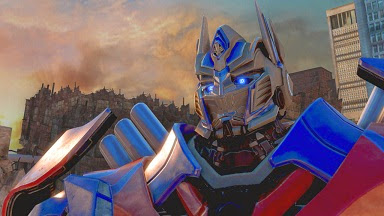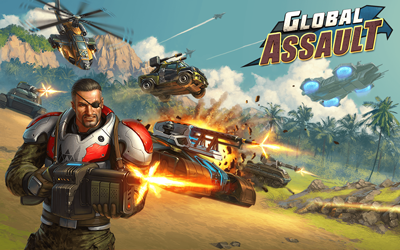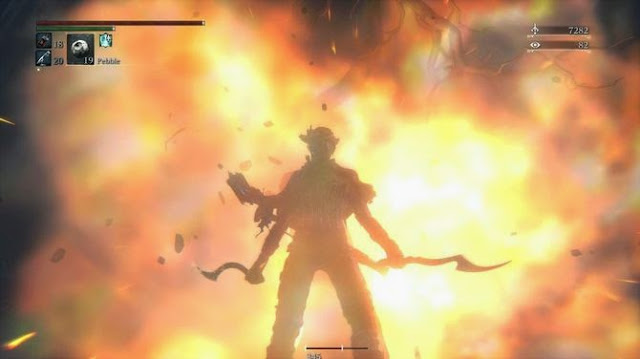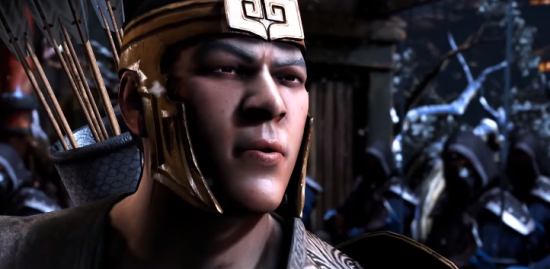

Assassin’s Creed 4: Black Flag is an incredible pirate adventure. No other game in memory--the mighty Sid Meier’s Pirates included--slides you so snugly into the boots of a brash buccaneer and demands that you collect booty with as much stylish aggression. As I steer salty protagonist Edward Kenway through rum-soaked debauchery, hunting for treasure, and brawling with drunken sailors at bars, I gently hum “What will we do with the drunken sailor” to myself, and feel a keen urge to refer to my colleagues as ‘wench’ or ‘matey’. That’s the strength of Black Flag’s incredible world. Ironically, it’s the actual ‘Assassin’s Creed’ elements--series legacy moments--that prove rough sailing in an otherwise enjoyable voyage.
First off, allow me to introduce Edward Kenway. He’s the father of Haytham Kenway (badass), and grandfather of Connor (dullard)--both stars of Assassin’s Creed 3. There’s a whiff of Han Solo to Edward, which makes him both more interesting and likeable than the rest of his family. His self-serving pirate persona is like a breath of fresh air, cutting through the furrowed-brow of previous games. To avoid spoilers, all I’ll say is that Edward’s naïve avarice gets him involved with the series-long Assassin’s vs Templar conflict, which revolves around the search for a mysterious place called The Observatory.
However, with Black Flag the joy is in the journey, not the destination; The Observatory that your virtual contemporaries bang-on about feels little more than a Macguffin. The game’s virtual Caribbean is enormous, yet very detailed. It dwarfs GTA 5’s play area and offers vibrant, colourful views from every synchronisation point. And while it isn’t a next-gen game that offers a huge visual upgrade from PS3 and 360, it’s a beautiful place to explore. The sea in particular, looks spectacular; especially when fierce storms send huge swells to buffet your ship, the Jackdaw, and the spray lashes your men who busy themselves on deck. (At this point, please note how difficult it was for me to write a ‘salty seamen’ joke right here. Ahem). On land, lush foliage shuffles as you wade through, and trees sway naturally in high-winds. The next-gen devil is in the superb detail, rather than visual wow moments.
The vibrancy of the world is key to Black Flag’s appeal. There’s so much to do here--the main story lasts around 20 hours, and side-quests easily occupy another 20--so it’s essential that you enjoy hopping between the game’s islands and exploring its cities. Each city area has a distinct feel--Havana is a maze of very Spanish, terracotta-roof houses, while Nassau is a more randomly-planned, ramshackle pirate town. Kingston is typical colonial era British. They’re all a welcome change from the dour streets of AC3’s Boston and New York. Don’t enjoy being a pirate? GTFO, land-lubber.
When you’re not exploring cities, searching for Sea Shanties (hard fact, you haven’t experienced the full majesty of Black Flag until you’ve heard every shanty) and looting chests, you spend around 40 percent of the game at sea, in the Jackdaw. The balance feels spot-on. There’s a wide variety of interesting naval activities to complete too, the highlight of which are the naval fortresses. These are like boss battles--you pound them from sea with your cannons and mortars before swimming ashore to kill the fort captain and claim the place as your own. This then unfogs areas of the map for you to explore. Each fort has a unique ‘defence mechanism’ (one is constantly buffeted by rogue waves, that damage your ship), so working out how to smash them is a welcome test of skill.
I played through AC4 on PS4, but had a chance to try the final PS3/360 versions. On current-gen the game looks beautiful, and even the amazing wave effects are comparable across formats. There’s a loss of vibrancy in the textures, so PS3’s lush jungles and azure seas aren’t quite as deep and colourful, and the environments don’t feel as alive because the detailed foliage effects are exclusive to next-gen. So, the PS3 and Xbox 360 versions are technically fantastic--they push the respective hardware to their limits. But they do lack detail and polish.
Most of the other collectables just appear on your map, which means that finding them requires time, rather than actual skill or smarts. Love a good grind? You’ll find it here. Again, though, because the world is such a pleasant, yet unpredictable place to be thanks to random weather changes, getting to these collectables is half the fun. I feel a definite sense of serenity as I chop across the ocean with my crew singing sea shanties, and pointing out areas of interest. Oh, have you stopped singing? I didn’t tell you to stop did I? No. THEN START SINGING AGAIN.
Side missions themselves are a mixed bags of quality. While grabbing all the Animus shards is a teeth-grinding exercise in compulsive ‘stuff collection’, the Assassin contracts and Templar hunts offer refreshingly creative breaks from the core story. Even the shark / whale hunting is feels different and satisfying every time you climb into the Jackdaw’s fishing boat.
Sadly, the game does fall apart during some of the main missions, which rely too heavily on repetition of systems that have barely evolved since the original game. Tailing targets, eavesdropping on conversations, even following ships in the Jackdaw--they’re great the first few times you do them, but Black Flag just repeats the same mission types over and over. It’s a stark contrast to GTA 5’s smart, original mission design, and something that needs examining before the next game. Tellingly, I only recall one assassination mission, near the end, which captures the creative magic that made AC2 such a runaway success. Made me feel warm and cosy, a dark glimpse into my own psyche that I’ll ignore for now. So, yeah, for a game called ‘Assassin’s Creed’ there’s very little actual assassination.
Aaaand… it’s here where Assassin’s Creed 4 is going to split opinion. As I said at the start: Black Flag is a fantastic piracy sim with some well rounded, well voiced supporting characters, but the latter parts of the story are still in thrall to mystical, beard-stroking cod-philosophy that muddied AC3. It’s at these moments when Black Flag is weakest. Characters are killed off too quickly, plot threads are too hastily tied off, and the final confrontation is one of the least satisfying in any Assassin’s Creed game to date: all concessions to the game’s labyrinthine lore.
Following Desmond’s death, Black Flag was a perfect chance to break away from all the mystical guff that has held back the series, but the appearance of ‘returning characters’ feels like a lead weight dragging Edward Kenway to the depths of ridiculousness. Shame, because the original way this game handles the relationship between the historical segments and the modern day story is superb.
You play as a random Abstergo employee, who dips into the Animus as part of research for a pirate game. Essentially, the game is about Abstergo making the latest Assassin’s Creed game, yeah? It’s very, very self-referential, but handled superbly well. This alone ensures that there’s enough in-jokes and fan pleasing stuff in the out-of-Animus world to satisfy long term fans. Ubisoft even trolls players at one point, letting players access a leaked document that discusses possible future locations for the AC series. Few games treat fans with such playful respect. I certainly felt special.
Assassin’s Creed 4: Black Flag is an imperfect game, for sure, but I found the overall experience immensely enjoyable. Accept that it’s really a game about pirates, not assassins, and you’ll love filling the boots of Edward Kenway for 30-40 hours. The fact that it regularly departs so markedly from the core series is--bizarrely--Black Flag’s greatest strength, and it’s only when concessions are made to the origins of Assassin’s Creed that the quality drops. A brilliant pirate game, then, but not a vintage Assassin’s Creed.




 How to get Global Assault More Coins, Better Battles, Resources, Research and more, Tips Guide
How to get Global Assault More Coins, Better Battles, Resources, Research and more, Tips Guide Should You Get the Minecraft Windows 10 Edition?
Should You Get the Minecraft Windows 10 Edition? Bloodborne - Alfred, Djura (NPC) Location, Quest Lines
Bloodborne - Alfred, Djura (NPC) Location, Quest Lines Mortal Kombat X Guide: How to Play Kung Jin
Mortal Kombat X Guide: How to Play Kung Jin Dark Souls II Wiki – Everything you need to know about the game .
Dark Souls II Wiki – Everything you need to know about the game .